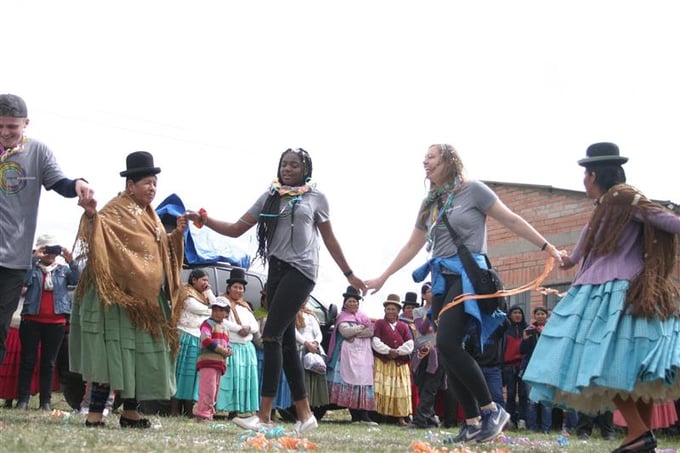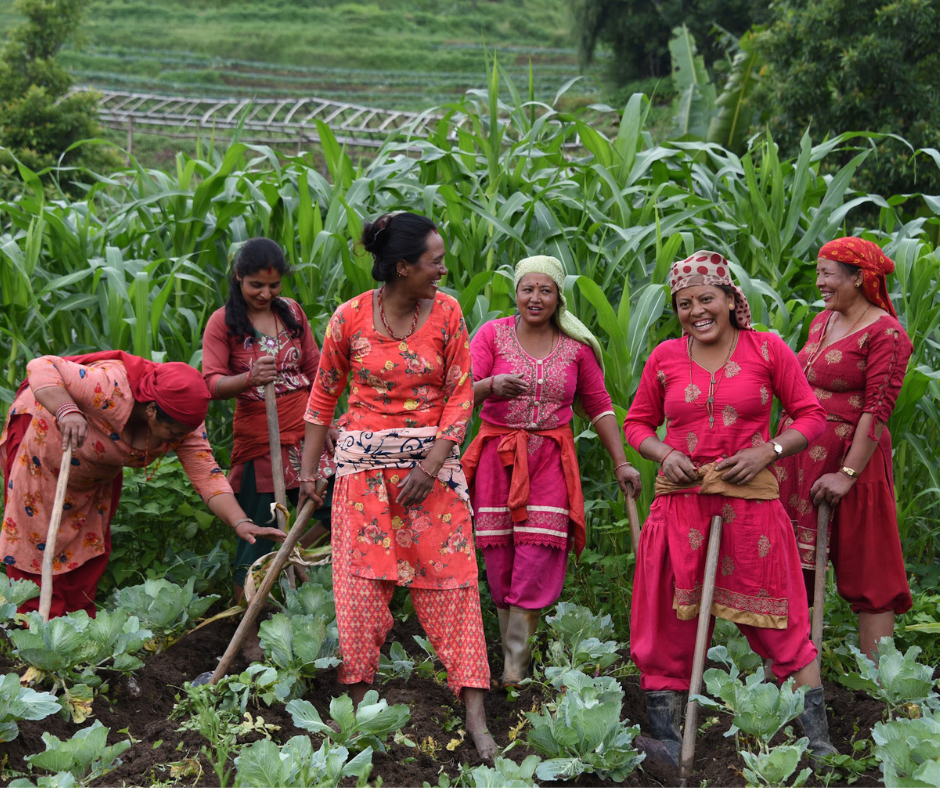In the field of international development, most experts draw a sharp distinction between development assistance and humanitarian assistance. Development assistance is the branch that focuses on long-term, sustainable progress and poverty reduction, while humanitarian assistance provides emergency and disaster relief in the event of natural or man-made disasters. Typically, professionals rarely cross over from one assistance area to the other. Instead, they work hard to acquire the specialized knowledge and skill sets needed to perform effectively in their respective area. Except for a brief period when I focused on the overlap between the two areas—building resilience—I have spent almost all of my 36-year career on the development assistance side of the field.
So, when I first joined CHOICE in 2020, I was somewhat perplexed by the “Humanitarian” in our name, “CHOICE Humanitarian”. While there have been several notable instances in which CHOICE has responded to emergencies brought on by natural disasters in the countries we serve, I believe we are an organization firmly planted on the long-term, sustainable development side of the field. Moreover, I’m enamored of the concept of “choice”. I believe that’s essentially what we do as an organization: we try to expand the range of choices available to the marginalized families and communities we serve. Can you see why I have always been a fan of the name “CHOICE” and not quite so thrilled with “CHOICE Humanitarian” as the complete name of our organization?
I was wrong. Very wrong.
Let me explain what led me to this complete change of mind.
A few weeks ago, I met with a Colombian friend and mentor of mine in Bogotá. As I introduced him to CHOICE Humanitarian, he commented on how appropriate our name is for today’s development challenges:
“We must humanize our work—it all starts with our shared humanity and collective human values.” When I expressed my surprise at his comment, he went on to chide me for being too much of a structuralist. (I frequently talk about strategies, programs, outcomes, and impact.) I pressed my friend, one of the most respected thinkers on development in Colombia, to help me understand why the humanitarian concept was so important.
He patiently explained that his country is caught up in decades of war and violence. Many talented and dedicated men and women, along with countless organizations, are working hard to cement peace and help the country’s many millions of underserved people find a way out of poverty and suffering. In spite of these efforts, peace and poverty reduction remain elusive for many regions of the country.
For my friend, a wide acceptance of humanitarian values is the missing ingredient. To that end, the newly elected Colombian government has invited all parties, including combatants, to the table and is making a concerted effort to promote those basic humanitarian concepts, recognizing that all must be a party to the solution and all are part of the Colombian family.
In my worldview, we are all part of a wonderfully diverse global community. Most religions and belief systems teach that we are all brothers and sisters, part of a human family. I also believe that we are all connected in ways that are both simple and complex. My friend’s comments sparked a few questions for me: what does it mean to be part of the human family? What are the basic principles shaping these familial relationships? And would a collective awareness (and acceptance) of these principles really make a difference?

Perhaps the place to start is, what are the essential traits of a human being? Oh, I know that what separates homo sapiens from other animals is our superior mental development, power of articulate speech, and upright stance, but do those things make us human? Drill down into those basic traits a bit more and we observe that, as human beings, we have intellect and free will. This means we also have the ability to grasp, recognize, appreciate, and act on truth and goodness. We can also reason and, to varying degrees, decide freely how we will react to different situations. In other words, we can choose from among options—either to work for or to disregard truth and goodness.
Let’s build on what it means to be human and dig into how we can exercise the essence of human goodness. In other words, what does it mean to be “humanitarian”? The dictionary defines the word as “concerned with or seeking to promote human welfare.” Basic humanitarian principles such as humanity, neutrality, impartiality, and independence are fundamental to humanitarian action. Humanitarian principles inspire us to action—to address suffering wherever it is found, with particular attention on the most vulnerable.
As a general principle, CHOICE Humanitarian works among the most remote, underserved populations in our present countries—the “most vulnerable.” We work hard to expand the range of choices available to those most in need. Last year, we celebrated our 40th anniversary. During the past four decades, CHOICE has implemented over 2,430 social and economic projects impacting the lives of more than 2,820,000 people of all ages. Over that same period, we’ve had 77 board members and 9 CEOs; 221 men and women are currently working, or have worked, for CHOICE in the U.S and abroad; and we’ve raised nearly $80 million during that time to support the work we do in Africa, Asia, Latin America, and the Navajo Nation.

I used to believe that where the echoes of our past meet the challenges of the present and the opportunities of the future was around the concepts of community and collaboration. CHOICE relies on the community to do our work— on local partners, on our donors, and on all our wonderful volunteers. In fact, collaboration is not merely something we do, it’s how we do our work. But then, that’s the “technical, structural” development professional talking. If we look beyond the how to the why, we see clearly that what has always defined CHOICE Humanitarian goes much deeper than approach and method. The heart of CHOICE Humanitarian is in our shared humanity and humanitarian values.
It is often easier to focus on the purely technical aspects of our work. But good practice, no matter how effective, is only as sustainable as the principles and values upon which it is based. For CHOICE Humanitarian, these principles spring from the values that unite us all in our common humanity, the values expressed in our Vision and Mission statement, and the values that guide our operations.
Since joining CHOICE Humanitarian three years ago, I’ve had the privilege of meeting and working with hundreds of humanitarians, both in the U.S. and around the world. I’m always amazed, but never surprised, by the generosity and humanity of the CHOICE family. Members of our community have sacrificed and suffered great personal loss while in the service of others, yet still they persist.
.png?width=768&height=1024&name=10_MicrosoftTeams-image%20(92).png)
Recognizing that they have much and others have so little, they share their time, talents, and resources to relieve suffering and improve the quality of life for many thousands of members of our human family. Most of whom they have never even met, nor are ever likely to meet. This they do without expecting recognition or recompense of any kind from those they have helped. All because they feel a kinship and connection to humanity and seek to promote human welfare. Like the men and women who work for CHOICE, they “see people everywhere for their untapped potential, not merely as people needing help.”
These humanitarians are my role models. They give meaning to our work. And they ensure that this work will continue for as long as the human family and shared human values exist.
All of the world’s countries, not just Colombia, are facing daunting problems—poverty, famine and disease, shrinking natural resources, and war and violence—to name just a few. It’s all too tempting to reach for the nearest technical solution. Technology is advancing rapidly on all fronts. Why, then, does it seem like we’re losing the race? Perhaps it’s because we simply need more of us to feel connected to one another, to recognize and adopt basic humanitarian values so that the technical and the technological can find common ground.
CHOICE Humanitarian. I love our name and fully embrace all the meaning it holds. I will strive to be a better humanitarian. I invite you to join me.